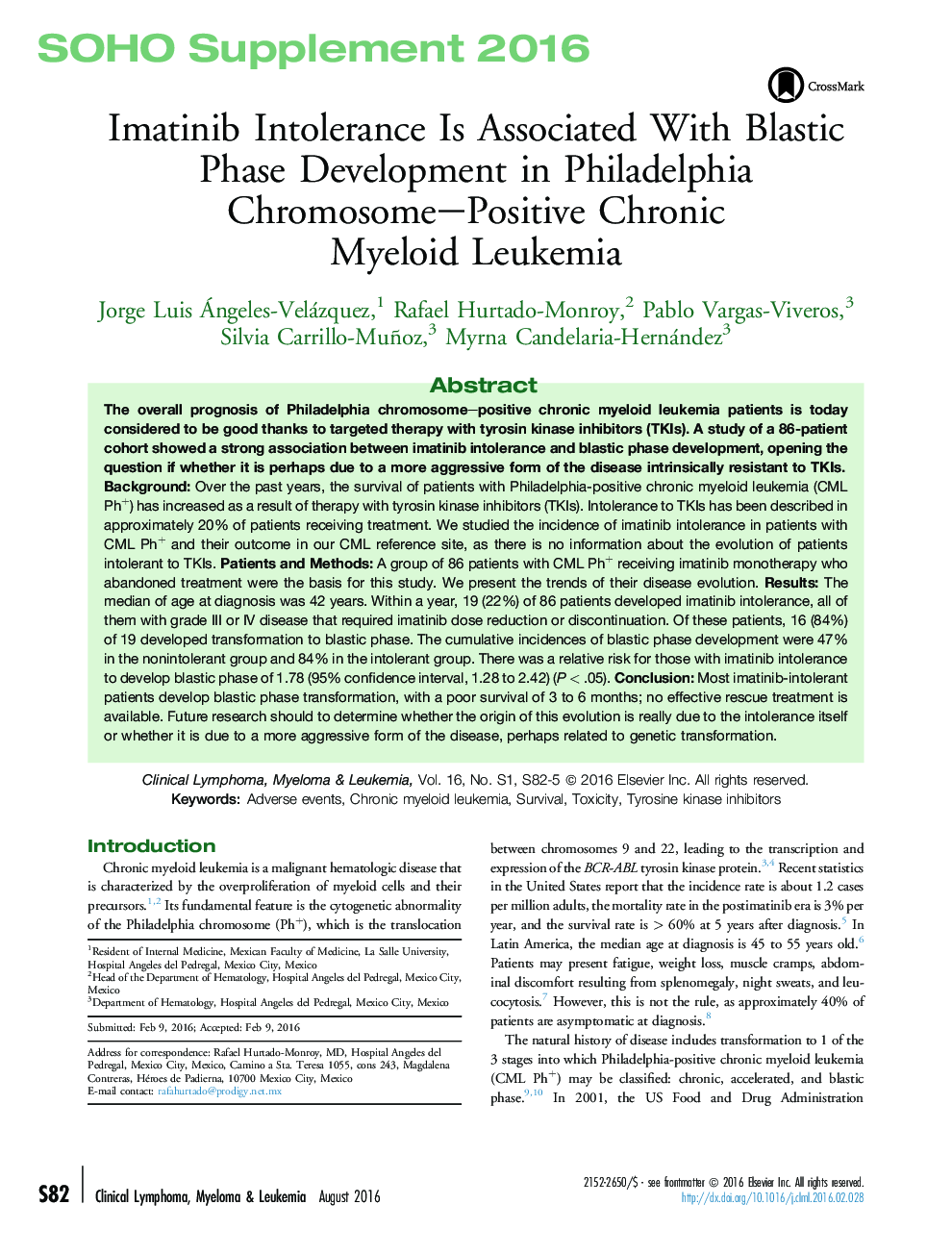| Article ID | Journal | Published Year | Pages | File Type |
|---|---|---|---|---|
| 2754409 | Clinical Lymphoma Myeloma and Leukemia | 2016 | 4 Pages |
BackgroundOver the past years, the survival of patients with Philadelphia-positive chronic myeloid leukemia (CML Ph+) has increased as a result of therapy with tyrosin kinase inhibitors (TKIs). Intolerance to TKIs has been described in approximately 20% of patients receiving treatment. We studied the incidence of imatinib intolerance in patients with CML Ph+ and their outcome in our CML reference site, as there is no information about the evolution of patients intolerant to TKIs.Patients and MethodsA group of 86 patients with CML Ph+ receiving imatinib monotherapy who abandoned treatment were the basis for this study. We present the trends of their disease evolution.ResultsThe median of age at diagnosis was 42 years. Within a year, 19 (22%) of 86 patients developed imatinib intolerance, all of them with grade III or IV disease that required imatinib dose reduction or discontinuation. Of these patients, 16 (84%) of 19 developed transformation to blastic phase. The cumulative incidences of blastic phase development were 47% in the nonintolerant group and 84% in the intolerant group. There was a relative risk for those with imatinib intolerance to develop blastic phase of 1.78 (95% confidence interval, 1.28 to 2.42) (P < .05).ConclusionMost imatinib-intolerant patients develop blastic phase transformation, with a poor survival of 3 to 6 months; no effective rescue treatment is available. Future research should to determine whether the origin of this evolution is really due to the intolerance itself or whether it is due to a more aggressive form of the disease, perhaps related to genetic transformation.
